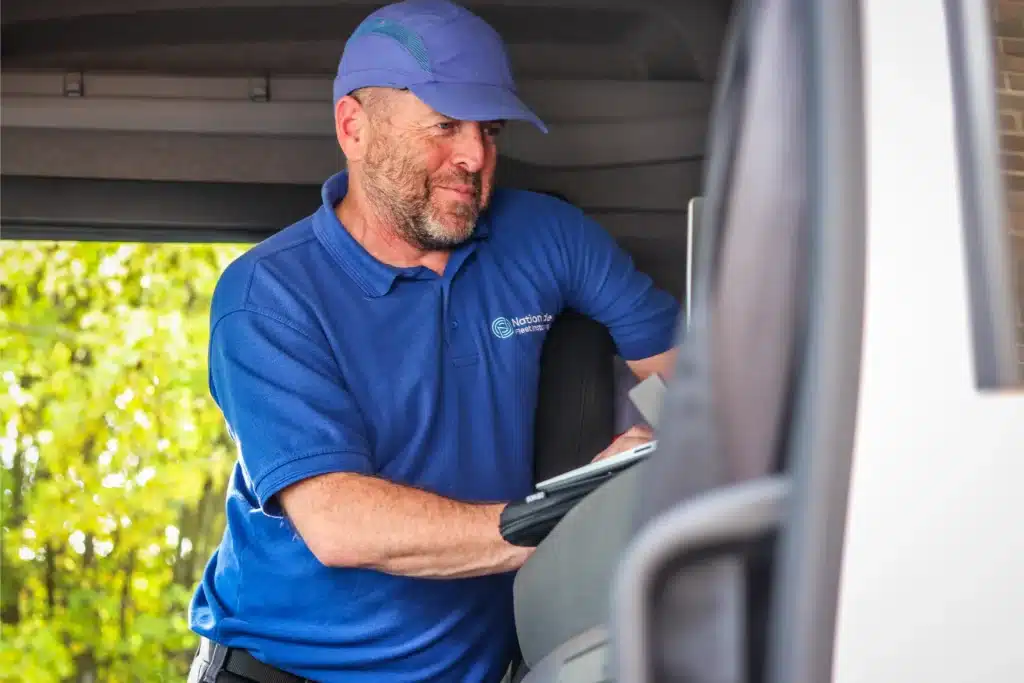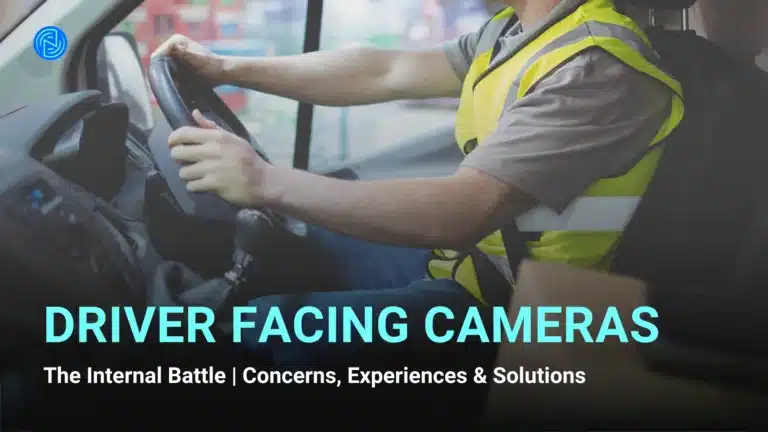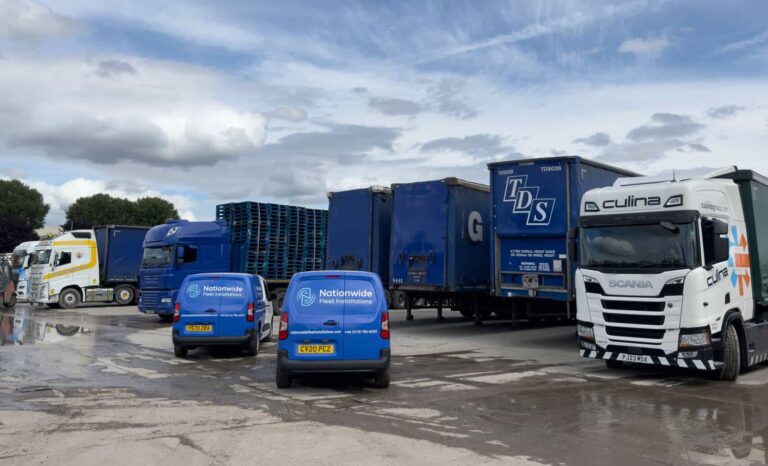Telematics Companies: Why the Right Installation Partner Makes All the Difference

Why Telematics Companies Need Reliable Installation Partners
Telematics companies are focused on growth, customer satisfaction, and staying competitive, investing time and money to ensure their solutions align with customers’ real-world challenges.
In today’s environment, fleet operators are grappling with rising costs, the shift to electrification, carbon reduction targets, and increasingly complex vehicle systems. Telematics and Fleet Management businesses know it’s no longer enough to simply develop innovative platforms and supply the right hardware – solutions must actively tackle these challenges.
Industry experts such as Fleet World and Business Motoring highlight the evolving pressures on fleet operators, from regulatory changes to operational efficiency demands. While many businesses in this sector prioritise software development and sales, an often-overlooked aspect of a successful telematics business is installation and implementation, particularly the role of professional telematics installers.
Even the best platform or device can fall short if the installation isn’t right. Many telematics companies still underestimate the impact a professional installation partner can have, not only on performance but also on the customer experience. When installation is done well, it strengthens your brand, reduces support issues, and accelerates growth. It’s not a bolt-on service; it’s a core part of delivering the value your customers expect.

What is a Telematics Installer?
A telematics installer integrates fleet management and telematics technology into vehicles on behalf of fleet operators and technology providers. This includes installing IoT (Internet of Things) devices, tracking systems, cameras, and sensors to collect data such as location, speed, fuel consumption, and driver behaviour.
A telematics installer integrates fleet management and telematics technology into vehicles on your behalf. They fit your systems, including trackers, cameras, IoT devices, and sensors, into your customers’ fleet vehicles, ensuring your hardware functions correctly, collects data, and enabling customers to start using your solution.
An experienced telematics installer is accustomed to handling thousands, even millions, of system connections. Experienced installers work at scale, handling thousands of complex installations across various vehicle types, including hybrids and EVs, while ensuring safety, professionalism, and compliance with relevant legislation. They also know how to avoid the common pitfalls that lead to delays, poor integration, or dissatisfied customers.
They stay up to date with the latest fleet technologies and how best to integrate them into vehicles.
How Partnering with a Professional Installer Can Help Your Business
Deliver a Full-Service Offering
Partnering with an installation company enables the provision of a comprehensive end-to-end telematics and fleet management offering. Rather than merely supplying the hardware and software, this approach allows for aftersales support and installation and fosters a long-term relationship. This enhances customer lifetime value and overall expenditure.
For Telematics service providers (Tsp) offering a complete suite of fleet, mobility, and connectivity solutions, collaboration with a partner becomes essential to ensure that customers can effectively integrate these services without the need to spend additional resources to upskill or search for an installation subcontractor for each new solution, which can add to invoicing and admin headaches.
While some customers are comfortable handling the hardware integration process, it’s important to realise that, although they may be able to install trackers, they might lack the necessary expertise to implement AI cameras or asset tracking systems. This is primarily due to the complexities involved in these technologies.
By engaging a partner, you can confidently expand your offerings, assured of having a reliable technical collaborator to facilitate client onboarding and drive business growth.
Improve Customer Experience
A common issue for Telematics companies is leaving customers to arrange their own installations. This can result in failed integrations, technical complications, and a poor user experience. Leaving the customer to handle installations introduces complexities and potential roadblocks in the aftersales experience, especially when the customer thinks it’s easy but ends up finding out how complex it can be (finding someone in their business to be a project manager, arranging logistics, technical queries and navigating the different installation companies on the market). By integrating an installation partner into your service, you retain control over the entire customer journey, ensuring a smooth transition from sales to implementation.
Improve the Customer Experience
Your customers often encounter pushback from drivers and end-users who are concerned about surveillance, job security, or unfamiliar technology. While you may not directly manage internal adoption, our engineers engage with drivers during installations, explaining how systems work and offering a clear handover. This human interaction goes a long way in dispelling misinformation, building trust, and encouraging positive use of the technology.
Technical Support in Sales Meetings
Fleet operators often have technical concerns before committing to a new telematics platform. They want to understand how the system will integrate with their existing vehicles, how long a rollout will take, and what additional hardware might be required.
Bringing an installation expert to sales meetings ensures that these questions are answered accurately, increasing the likelihood of closing deals and reinforcing your credibility. By involving installation specialists early, during sales meetings, you can accurately answer these questions, demonstrate the practicality of your solution, and improve your chances of closing deals.
Full-Service Support – From Sale to Aftersales
Managing installations can be a significant distraction. It takes time, technical skill, and resources that would be better spent on product development, R&D or customer support. By working with a dedicated telematics installer, you can delegate the installation process and focus on business growth while ensuring customers receive high-quality service.
Direct Technical Support for Customers
If a customer encounters an issue with installation or hardware, they often prefer direct contact with the expert handling the installation rather than being redirected through multiple support channels. A telematics installer streamlines this process, reducing downtime and resolving technical issues more efficiently. This allows you to provide your customers with a dedicated number for technical support and any installation-related issues, ensuring a straightforward troubleshooting process.
Expand Into New Markets and Regions
Partnering with an installation provider allows you to scale your business into new regions without the need for an in-house installation team. Local installers have on-the-ground knowledge of customer requirements, regulatory compliance, and vehicle specifications. For example, UK installations require expertise in right-hand drive vehicle configurations, which can differ significantly from other markets.
Reduce Vehicle Downtime and Accelerate Rollouts
Fleet operators are highly concerned about vehicle downtime during telematics installations. Working with a professional installer allows you to provide accurate rollout timelines, minimising disruption to operations. Installers can also offer pilot installations to test systems before full-scale deployment, reducing the risk of unexpected delays.
Gain a Competitive Advantage
In a rapidly evolving fleet technology market, differentiation is crucial. Aligning with a reputable telematics installer adds value to your offering, positioning your business as a full-service provider rather than just a technology supplier.
Streamline Logistics and Deployment
Fleet operators managing large fleets often struggle with handling the logistics of receiving, sorting, and deploying telematics hardware. Installation partners simplify this by managing hardware logistics, ensuring that the right equipment is available when needed, and coordinating installations efficiently.
Avoid In-House Limitations
Even well-resourced telematics companies often struggle with installation. Your in-house teams might be stretched, lack hands-on vehicle experience, or simply not have the time to manage complex rollouts. This leads to delays, customer dissatisfaction, and missed opportunities.
By outsourcing to a trusted installation team, you avoid these limitations and gain a partner who is solely responsible for connecting your customers and knows how to fit systems quickly and correctly.
Looking To Grow Your Telematics Business
If you want to grow your telematics business, acquire new clients, and retain existing ones, partnering with a professional installer can be a game-changer. Contact Nationwide Fleet Installations today to explore how we can support your business to achieve these goals. You can book a consultation with us, granting you access to an installation expert – to ask any questions, find out how we can integrate your solutions into vehicles, clarify your needs, and transform your plans into reality, removing installation headaches.
Your Trusted Telematics Installation Partner
We’ve been working with telematics companies, fleet software providers, and OEMs since 1995, specialising in the installation of telematics, cameras, and other vehicle technologies. Our expertise helps businesses accelerate equipment rollouts, expand geographical coverage, and eliminate installation complexities.
Our highly skilled team of engineers, strategically positioned across the UK, completes thousands of installations every week. Whether you require a single service call or need to install technology across 30,000 vehicles, Nationwide Fleet Installations ensures seamless implementation. Contact us today to discuss how we can enhance your operations.



